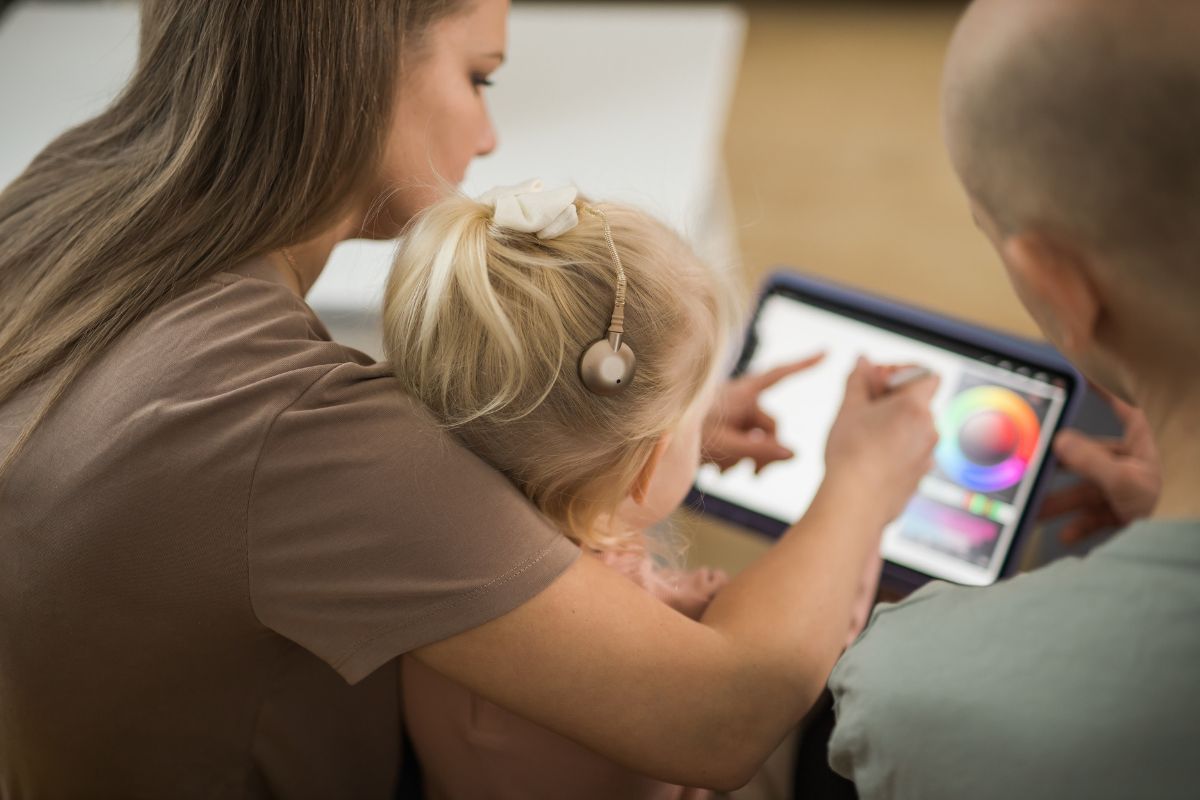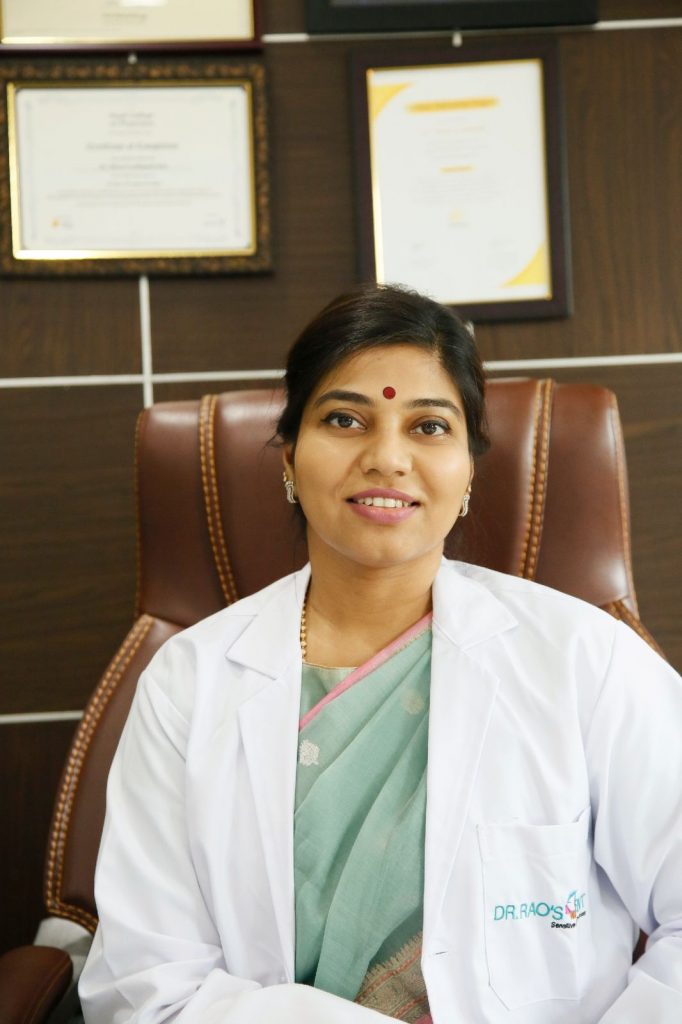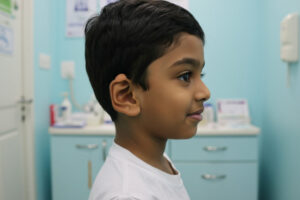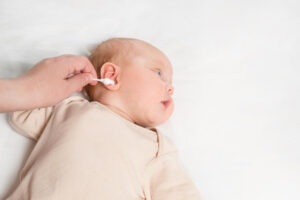Introduction to Cochlear Implant Candidacy
In the discourse presented here, Dr. Shree Rao provides insights into Cochlear Implant Candidacy. She is the Best Doctor for Cochlear Implants.
In the intricate realm of auditory health, the consideration of cochlear implants marks a significant juncture. This exploration delves into the nuanced factors that determine candidacy for cochlear implants, offering a comprehensive understanding of this transformative technology. Guided by the expertise of professionals like Dr. Shree Rao, this article navigates the complexities surrounding cochlear implant eligibility, shedding light on the profound impact it can have on individuals with hearing challenges.
Audiological evaluation process
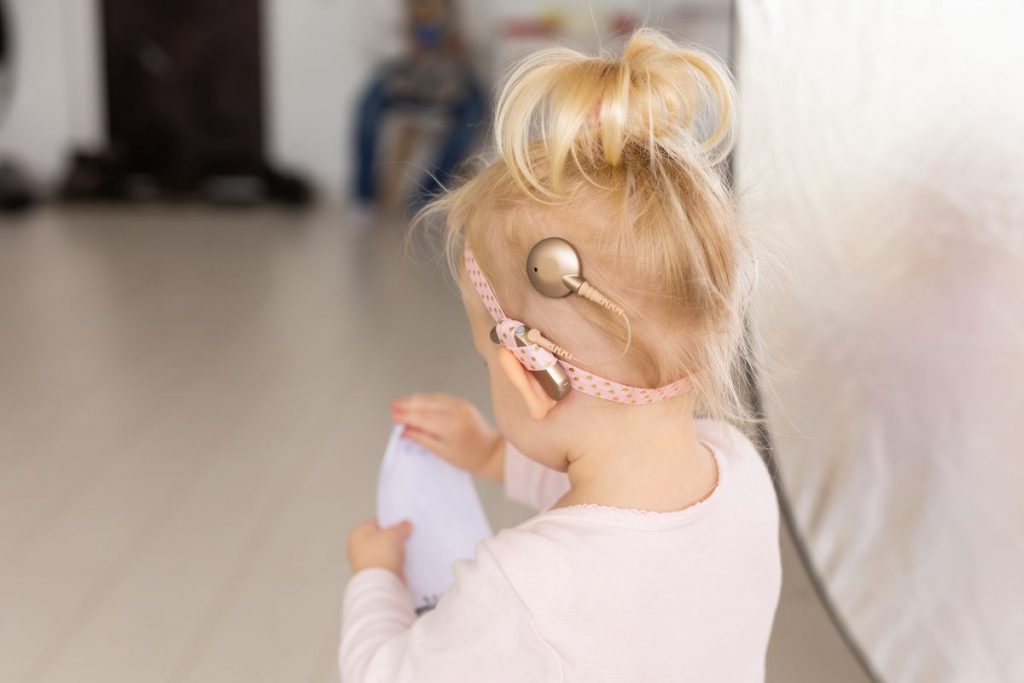
The audiological evaluation process is a foundational component in determining candidacy for cochlear implants. Audiologists employ a range of tests to comprehensively assess the individual’s hearing capabilities. These assessments include:
Pure-Tone Audiometry:
Pure-tone audiometry is a fundamental test that measures the softest sounds an individual can hear at different frequencies. This helps determine the extent and nature of hearing loss across the audible spectrum.
Speech Perception Assessments:
These assessments evaluate the individual’s ability to understand speech, often in the presence of background noise. Common tests include speech discrimination and word recognition assessments.
Auditory Brainstem Response (ABR):
ABR tests measure the electrical activity generated by the auditory nerve and brainstem in response to sound stimuli. This objective test provides insights into the integrity of the auditory pathway.
Otoacoustic Emissions (OAE) Testing:
OAE testing assesses the health of the inner ear’s outer hair cells by measuring the sounds they emit in response to a stimulus. This test is particularly useful in pediatric evaluations.
The results of these assessments help audiologists determine the severity and nature of hearing loss, which is crucial in establishing candidacy for cochlear implants. It provides a comprehensive understanding of the individual’s auditory profile and contributes to the decision-making process.
Speech-language assessment
Speech-language pathologists (SLPs) play a pivotal role in assessing the communication abilities of individuals seeking cochlear implants. Their assessments focus on various aspects of communication, including:
Articulation and Speech Clarity:
SLPs evaluate the individual’s ability to articulate sounds and ensure speech clarity. This is crucial for effective communication post-implantation.
Language Development:
Assessment of language skills helps determine the individual’s linguistic abilities, including vocabulary, syntax, and comprehension. This evaluation is essential for predicting post-implantation language development.
Auditory Processing Skills:
SLPs assess how well the individual processes auditory information, as this skill is integral to understanding and interpreting spoken language.
Speech-language assessments provide valuable insights into the individual’s current communication abilities and serve as a baseline for measuring post-implantation progress. The findings contribute significantly to the overall candidacy decision.
Medical criteria for cochlear implant candidacy
Beyond audiological assessments, medical criteria are essential considerations in determining candidacy for cochlear implants. A thorough medical evaluation helps ensure the safety and success of the implantation process. Key medical criteria include:
Candidates must be in good general health to undergo cochlear implantation surgery. This involves assessing overall fitness and identifying any medical conditions that may pose risks during the procedure.
Evaluation of the individual’s ear anatomy is crucial to determine the feasibility of cochlear implantation. The surgeon assesses the structure of the cochlea and other components to ensure they are suitable for implantation.
Certain medical conditions or factors, such as active ear infections, bleeding disorders, or unresolved medical issues, may contraindicate cochlear implantation. These factors are carefully considered during the medical evaluation.
A collaborative approach involving audiologists, ear, nose, and throat (ENT) specialists, and other medical professionals ensures a comprehensive understanding of the candidate’s medical status. This multidisciplinary assessment is critical in providing a holistic view of the individual’s eligibility for cochlear implants.
Age-related candidacy considerations
Cochlear implant candidacy criteria are tailored to different age groups, recognizing that the needs and developmental stages vary across the lifespan.
Pediatric Candidacy:
For pediatric candidates, early intervention is crucial. Criteria include considerations for language development, educational needs, and the potential for maximizing auditory outcomes during critical developmental periods.
Adult Candidacy:
Adult candidates may have different criteria, with a focus on communication needs, lifestyle, and the impact of hearing loss on daily activities. The decision may also consider factors such as vocational requirements and social interactions.
Elderly Candidacy:
Elderly individuals seeking cochlear implants may face unique challenges, including age-related factors such as cognitive decline. The candidacy criteria for this demographic group may be adjusted to account for these considerations.
Understanding the age-related nuances in candidacy criteria ensures that eligibility assessments align with the specific needs and circumstances of individuals at different stages of life.
Hearing loss severity and candidacy

The severity of hearing loss significantly influences cochlear implant candidacy. The degree of hearing loss is categorized as:
Mild Hearing Loss:
Individuals with mild hearing loss may still benefit from conventional hearing aids, and candidacy for cochlear implants is typically not considered unless there are additional factors impacting communication.
Moderate to Severe Hearing Loss:
Candidates with moderate to severe hearing loss may be eligible for cochlear implants, especially if their hearing aids no longer provide sufficient benefit.
Profound Hearing Loss:
Cochlear implants are often recommended for individuals with profound hearing loss, as traditional hearing aids may not offer significant improvement in auditory experiences.
The severity of hearing loss is a critical factor in determining candidacy, as it directly correlates with the potential benefits of cochlear implantation.
Candidacy for bilateral hearing loss
Cochlear implant candidacy criteria for bilateral hearing loss recognize the importance of providing a balanced and natural auditory experience. Considerations for bilateral candidacy include:
Degree of Hearing Loss in Each Ear:
Assessing the degree of hearing loss in each ear helps determine the overall impact on communication. Candidates with significant hearing loss in both ears may be considered for bilateral cochlear implantation.
Potential Benefits:
The potential benefits of bilateral cochlear implantation include improved localization of sound, enhanced speech understanding in noise, and a more immersive auditory experience.
Quality of Life Considerations:
The decision to pursue bilateral cochlear implants is often influenced by the individual’s quality of life and the desire for a more symmetric and comprehensive hearing solution.
Candidacy for bilateral hearing loss reflects a nuanced approach to cochlear implantation, recognizing the benefits of providing auditory input to both ears.
Candidacy for single-sided deafness
Advancements in cochlear implantation have expanded candidacy considerations to include single-sided deafness (SSD). Individuals with hearing loss in one ear may be considered for cochlear implants based on:
Difficulty with Sound Localization:
SSD can impact an individual’s ability to localize sounds accurately. Cochlear implants may help restore spatial hearing and improve overall auditory perception.
Impact on Communication:
Candidates with SSD may experience challenges in communication, especially in noisy environments. Cochlear implants can address these challenges and enhance overall communication abilities.
Quality of Life Improvements:
Cochlear implantation for SSD is often pursued to improve the individual’s overall quality of life, addressing the specific challenges associated with hearing loss in one ear.
The expanding criteria for SSD candidacy reflects the evolving landscape of cochlear implantation, providing solutions for a broader range of hearing challenges.
Cochlear Implant Candidacy for Children
Determining candidacy for cochlear implants in children involves a comprehensive assessment that considers various factors unique to pediatric cases:
Age at Diagnosis:
Early intervention is critical, and candidacy criteria may include age-related considerations to ensure timely access to cochlear implantation for optimal language development.
Developmental Milestones:
Assessment of developmental milestones helps gauge the child’s overall progress and potential challenges related to hearing loss. This includes considerations for language, social interactions, and educational needs.
Conclusion
In conclusion, the nuanced understanding of cochlear implant candidacy is a pivotal key to unlocking the potential for enhanced hearing and improved quality of life. Navigating through the intricate criteria with guidance from experts like Dr. Shree Rao illuminates the path toward embracing the transformative possibilities that cochlear implants offer. As technology and medical expertise continue to advance, the prospect of a richer auditory experience becomes more tangible, reshaping the landscape for individuals seeking to overcome hearing impairments.

Why consult EarSurgeon, Dr. Shree Rao?
Dr. Shree Cuddapah Rao is acclaimed as one of the best pediatric ENT specialists in Hyderabad. With 10+ years of deep domain experience in the field of ENT, she is the director at Dr. Rao’s ENT Super Specialty Hospital. She underwent specialized training in Rhinoplasty / Facial Plastic surgery at Singapore General Hospital, Singapore. She also underwent advanced training in cochlear implant surgery under Padmashri Dr. Milind V Kirtane and had a Fellowship in a cochlear implant. Having performed over 200 successful cochlear implants for patients worldwide, Dr. Shree Cuddapah Rao is also the recipient of several prestigious accolades in the domain of ENT. Dr. Shree Rao is one of the best ent doctor in hyderabad, to book an appointment click here.
Are you looking for
then you have landed at right place!

